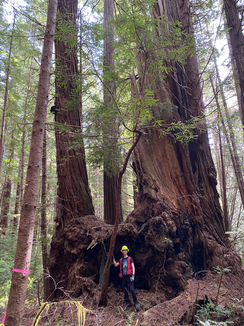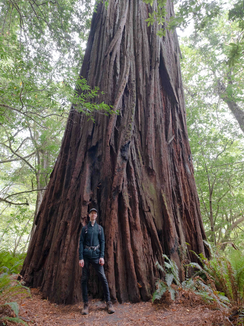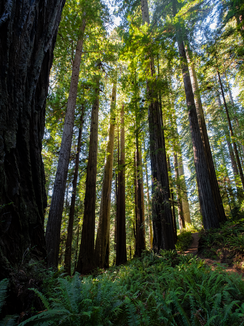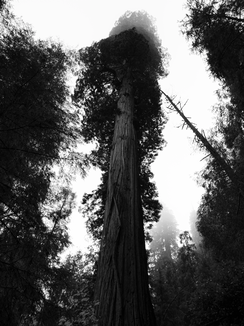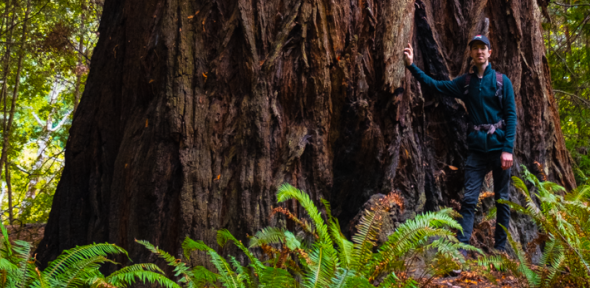
Submitted by Yolibeth López ... on Mon, 13/03/2023 - 17:54
William was looking for something that would be both rewarding and interesting to him as a plant scientist. After innumerable emails, and no small amount of luck, he found himself talking with the lead forester at Redwood National Park, and with his help arranged to travel over to Northern California to join him at Redwood National and State Parks (RNSP).
During his internship, William learnt all about and participated in one of, if not the largest, forest restoration projects underway anywhere in the world: https://www.savetheredwoods.org/project/redwoods-rising
By the 1960s only around 10% of the original old growth coast redwood remained, due to technological advances in forestry machinery and the increased demand for timber following World War II. After the clear cutting, these areas of forest were re-seeded via seed bombing from an aircraft, or equivalent methods - this has resulted in a tree density which is unnatural for this forest type, and which has left these forests in a state that makes it almost impossible for them to transition to old growth without external intervention.
To provide the secondary growth redwood trees with the space to grow, and the forest the chance to develop as it should, it is necessary to remove some of the trees that are present. This frees up space in the canopy for the redwoods to surpass the faster-growing tree species they grow alongside, and also to promote more complexity in the canopy structure and understory, which is integral for much of the wildlife that is dependent upon the redwoods. The restoration efforts also involve the removal of the vast network of old logging roads within the parks, along with the stream crossings created when those roads were laid down.
William worked alongside the forestry division to collect data from the secondary growth units which have been designated for thinning in the 2023 operating season, and in turn processing and analysing this data to facilitate the choice of thinning methods used and designation of any high-priority areas. During this time, he worked with many of the other divisions at RNSP to learn about and assist them with various aspects of their work – for instance, helping to establish the riparian exclusion zones that will enable the work to be undertaken with minimal impact on the many waterways which originate from or flow through the forest, and also preparing a freshly reinstated creek for the incoming rains by laying down cover on the exposed banks to prevent erosion.
William said that "the major goal of the internship for me was not particularly about learning new skills, but rather learning more about an area of biology that interests me. This is not something that is easily measured by discrete goals, but I do feel that I have achieved what I wanted to do – I have learnt a huge amount about forest ecology, and about the relationship we as humans have with it. The experience I have gained may not necessarily dictate my future career choices, but it will forever impact the wider decisions I make about how I interact with the natural world and the biology around me".


